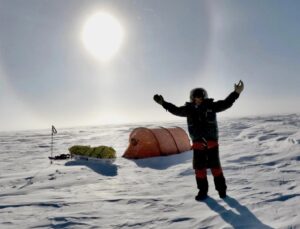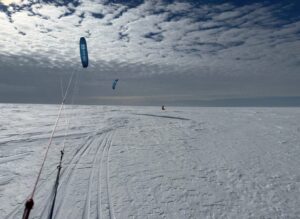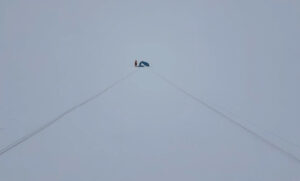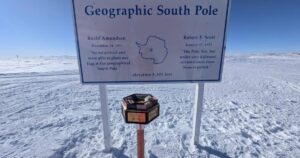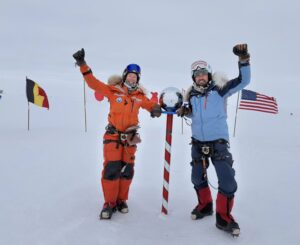British polar traveler Preet Chandi announced a second record today, the “longest solo and unsupported polar ski expedition.” Chandi skied from Hercules Inlet to the South Pole, and then on toward the Reedy Glacier, covering 1,484km in 70 days.
BBC News states that Chandi surpassed the previous record of 1,459km in 69 days, set by the late Henry Worsley in 2015. This 25km addition to the distance record has been recognized by the Polar Expeditions Classifications Scheme (PECS).
Chandi’s new distance record appears far less than that of Aleksander Gamme. In 2011-12, the Norwegian skied 2,260km unsupported from Hercules Inlet to the South Pole and back in 87 days. At present, Guinness World Records recognizes this as the longest unsupported solo polar ski.
However, founder of PECS Eric Phillips confirmed to ExplorersWeb that Gamme self-laid depots of food/equipment along the way. “It’s totally valid as part of an unsupported strategy, but it’s a strategy of offloading sled load that’s not available to one-way journeys, so they need to be classified differently,” said Philips.
“We are in the process of re-classifying return expeditions, as it’s clearly much easier to benefit from self-laid depots when going for distance. It can’t be compared with a one-way trip.”

Aleksander Gamme. Photo: Helsport
Penalized for self-reliance
As PECS assesses and adjudicates polar journeys on behalf of Guinness World Records, they will now ask Guinness to change Gamme’s listing. This suggests that PECS and ALE have verified that Chandi did not use the South Pole Overland Traverse (SPOT) road, a graded, marked road from the South Pole toward the coast.
This latest polar record again highlights the lack of clarity over polar record keeping, and the need to contextualize claims against previous efforts. Gamme, who skied 776km further than Chandi, has seemingly been penalized for using self-laid depots.
As polar expedition records become further hair split, this begs the question: How much do these records really mean?
A way forward?
In medical research, scientists publish protocols which specify exactly how they plan to conduct their research and analyze the data. This is done to prevent researchers from later “data-dredging” evidence that supports pet hypotheses or makes their work more likely to be picked up by the media.
Perhaps polar travelers should do the same — submit their intended records before starting, and making these the only records that they are eligible to claim.
This would provide a system of tracking and vetting. It would also ensure that travelers do not hair split records after their expeditions are complete — particularly those who did not achieve their original aim.

